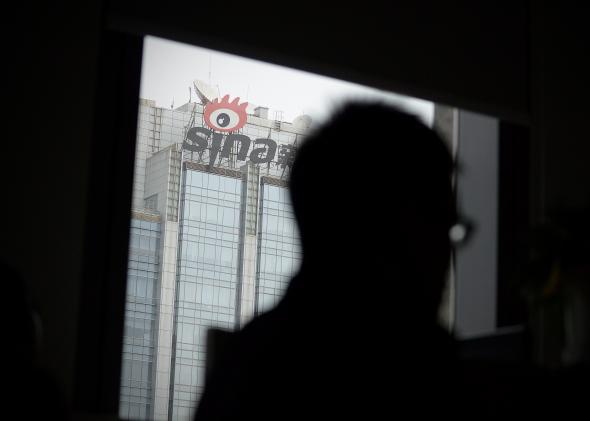The Netizen Report originally appears each week on Global Voices Advocacy. Eduardo Avila, Ellery Roberts Biddle, Lisa Ferguson, Michelle Fong, Hae-in Lim, Sarah Myers, and Bojan Perkov contributed to this report.
Global Voices Advocacy’s Netizen Report offers an international snapshot of challenges, victories, and emerging trends in Internet rights around the world. This week’s report begins in China. Just in time for World Press Freedom Day, the state-run newspaper People’s Daily ran an editorial [link in Chinese] highlighting the Internet’s “negative effects and hidden security dangers” and asking, “if you don’t have Internet order, how can you have Internet freedom?”
To show they mean business, the State Administration of Press, Publication, Radio, Film, and Television revoked some online publishing licenses from Sina, one of China’s largest Internet firms, on grounds that the company was providing platforms for the distribution of pornographic content. Some netizens believe Sina is being targeted not for porn infractions, but because of the popularity of Weibo, the leading microblogging platform, which is operated by Sina.
Alongside punishments aimed at Sina, more than 3,300 blogs, WeChat accounts and forums have been seized or suspended and more than 20 literature websites have been “disciplined” as part of the campaign. Gaming companies are also feeling the crackdown: Southern Metropolis Daily reported that some Web game companies have been notified by authorities that game characters are no longer allowed to expose sensitive body parts, or to wear short sleeves, shorts, or bikinis.
Thuggery: Bloggers, translators remain detained in Ethiopia
A group of press freedom and human rights organizations called upon the African Commission and United Nations to intervene in the cases of nine journalists detained in Ethiopia in late April. The Global Voices community released a statement calling for the release of the journalists, four of whom are Global Voices translators. To get involved, or to sign the statement, click here.
Free Expression: Malaysian Minister says too many newspapers could confuse people
In Malaysia, popular independent news websites FZ Daily and Malaysiakini were denied permission to print newspapers on the basis of government claims that the websites practice “controversial and sensational” journalism in order to attract readers. According to Free Malaysia Today, Home Minister Ahmad Zahid Hamidi said the decision is aimed at protecting the public from becoming confused by “too many news being published by all sorts of newspapers.”
A U.S. State Department official promised six Vietnamese bloggers that the United States would put Internet freedom on the agenda of the upcoming bilateral human rights dialogue with the one-party communist state, whose per-capita blogger detention rate is second only to China’s. The blogger-activists also importuned the U.S. government to champion freedom of expression in the context of the ongoing trade negotiations for the 12-country Trans-Pacific Partnership Agreement that could have adverse effects on digital access to information, among other things.
Netizen Activism: Bolivia’s Internet moving at a snail’s pace
Digital activists in Cochabamba, Bolivia, took to the streets on May 3, dressed as snails [link in Spanish] to represent the slow Internet speeds faced by users across the country. The grassroots movement “Más y Mejor Internet Para Bolivia” [link in Spanish], which means More and Better Internet for Bolivia, has been calling for lower prices, faster speeds, and better coverage from all telcos.
Publications and Studies
- “Tipping the Scale: An Analysis for Global Swing States in the Internet Governance Debate”—Centre for International Governance Innovation
- “ ‘A Bullet Has Been Chosen for You’: Attacks on Journalists in Pakistan”—Amnesty International
- “Violations of Freedom of Expression 2013, Brazil”—ARTICLE 19 South America
- “Freedom of Expression in Bangladesh”—ARTICLE 19
- “Asia Chats: LINE Censored Keywords Update”—Citizen Lab
